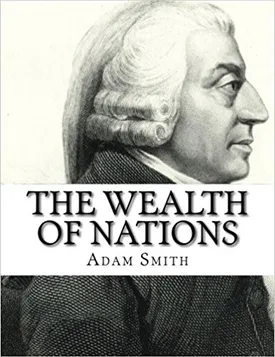Adam Smith
Adam Smith (1723-1790) is one of the most famous economists in the world and is often referred to as the father of economics. Smith was born in Scotland in 1723 and attended the University of Glasgow where he studied moral philosophy under the supervision of Francis Hutcheson. He later went on to become an important figure in the Scottish Enlightenment and was a professor of moral philosophy at the University of Glasgow and Balliol College, Oxford. Smith is most famous for his book An Inquiry into the Nature and Causes of the Wealth of Nations, which was published in 1776 and is considered to be the first modern work of economics.
Smith's most important contribution to economics was his concept of the “invisible hand”, which he believed to be the force that drove the market. According to Smith, when people act in their own self-interest (i.e. to make a profit), they naturally attract the best resources and are motivated to invest in ways that benefit society as a whole. This concept is often referred to as laissez-faire economics, a form of free-market capitalism which advocates for limited government intervention in the economy.
Smith was also a keen observer of human behavior and wrote about the importance of sympathy and reciprocity in civil society. He discussed how people are motivated by their self-interest, but also their need to cooperate with others and their desire to be accepted and respected by their peers. Smith believed that this behavior could be harnessed to promote excessive accumulation and the division of labour, which could lead to more efficient production and increased wealth.
Adam Smith's work had a profound influence on classical economics, and his ideas are still widely used today. In addition to his famous book, he also wrote several other works, notably The Theory of Moral Sentiments (1759) and Lectures on Jurisprudence (1762). Smith's work has had an enduring impact on economics and continues to inform economic thought and policy to this day.
Besides economics, Smith also wrote on topics such as moral philosophy and politics. He argued that government should be limited and its only purpose should be to protect the life and property of its citizens. Smith further wrote about the importance of free trade and a free market, and denounced the idea of mercantilism which was popular at the time.
Adam Smith's work has gone on to become some of the most influential books in economic history. His teachings and insight has had a profound impact on the development of economic thought and policy around the world. Smith was an important figure in the Scottish Enlightenment and he continues to influence modern economics and the study of human behavior to this day. His famous book, The Wealth of Nations, offers an insightful analysis of the market and a detailed description of how it works and why it is important to a successful economy.


